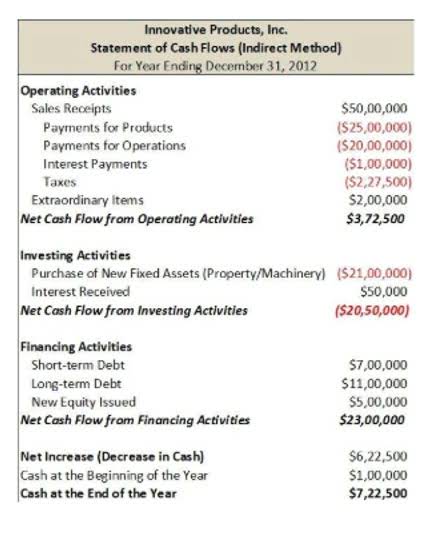keine Produkte im Einkaufswagen.
LegalRoids
Bank Reconciliation: Definition, Beispiel, and Process

They also can be done as frequently as statements are generated, such as daily or weekly. Bank reconciliation statements are contribution margin effective tools for detecting fraud, theft, and loss. Zum Beispiel, if a check is altered, the payment made for that check will be larger than you anticipate.
Failing to record all transactions:

If you use the accrual system of accounting, you might “debit” your cash account when you finish a project and the client says “the cheque is going in the mail today, I promise! Then when you do your bank reconciliation a month later, you realize that cheque never came, and the money isn’t in your books (even though your bookkeeping shows you got paid). A bank reconciliation statement is only a statement prepared to stay abreast with the bank statement; it is not in itself an accounting record, nor is it part of the double entry system. Bank reconciliation statements safeguard against fraud in recording banking transactions. zusätzlich, bank reconciliation statements brings into focus errors and irregularities while dealing with the cash. It’s important to perform a bank reconciliation periodically to identify fraudulent activities or bookkeeping and accounting errors.
Add bank-only transactions to your book balance
- This process should ensure that reconciling items relating to receipts and payments on the bank statement but not in the cash book are kept to a minimum before preparing the reconciliation statement.
- All such information is provided solely for convenience purposes only and all users thereof should be guided accordingly.
- Bank Example 2 showed that the bank debits the depositor’s checking account to decrease the checking account balance (since this is part of the bank’s liability Customers’ Deposits).
- Meistens, most companies prepare bank reconciliations at the end of each month.
- Bank reconciliations are like a fail-safe for making sure your accounts receivable never get out of control.
Miscellaneous debit and credit entries in the bank statements must be recorded on the balance sheet. If there are any differences, adjust the balance sheet to reflect all transactions. When he receives the bank statement for one of the business accounts, a checking account, he sees that it has an ending balance of $9,800 while the company’s book balance shows $10,500.
Deposits in Transit

Two central problems can arise with a manual, spreadsheet-driven bank reconciliation process. There is vital room for human error when your accountants are working by multi-tab Excel workbooks that include hundreds or thousands of line items that need to be overviewed. And though the very purpose of the reconciliation is to validate bank account balance accuracy, fat-fingering or transposing a number, unter anderem, is common in spreadsheets.
Auto-reconciles transactions
You only need to reconcile bank statements if you use the accrual method of accounting. This is to confirm that all uncleared bank transactions you recorded actually went through. When you “reconcile” your bank statement or bank records, you compare it with your bookkeeping records for the same period, and pinpoint every discrepancy. Dann, you make a record of those discrepancies, so you or your accountant can be certain there’s no money that has gone “missing” from your business.
What to Look for When Preparing a Bank Reconciliation?
Begin by aligning the bank account balance with the cash balance on your company’s balance sheet. Income from variable sources like interest and investment may be difficult to predict. https://www.bookstime.com/construction-companies So wie, exact amounts may not be accurately included on financial statements before the reconciliation process.

Do you own a business?

You’ll also need to make an adjustment if bank reconciliation you notice that a not-sufficient-funds (NFS) check hasn’t cleared. Ebenfalls, if you’ve made a check payment at the end of the month, it might not clear until the following reporting period. In the case of Feeter, the first entry will record the collection of the note, as well as the interest collected. Within each of the types of entry referred to above there are a number of common examples. Cash management software can integrate with many data sources, ensuring consistency in data requirements and quality.
- The balance recorded in your books (again, the cash account) and the balance in your bank account will rarely ever be exactly the same, even if you keep meticulous books.
- To reconcile means to “make one view or belief compatible with another.” In accounting, that means making your account balances equal to one another.
- ABC Co. can start from the adjusted bank book balance and adjust the timing differences to it to reach the bank statement balance.
- Follow our bank reconciliation series for more insight into this vital topic.
- They may not be fun, but when you do them on a regular basis you protect yourself from all kinds of pitfalls, like overdrawing money and becoming a victim of fraud.
- Reconciling your bank statement can help you avoid bounced checks (or failing to make electronic payments) to partners and suppliers.
- For some entrepreneurs, reconciling bank transactions creates a sense of calm and balance.
The statements give companies clear pictures of their cash flows, which can help with organizational planning and making critical business decisions. Nächster, we look at how a bank uses debit and credit when referring to a company’s checking account transactions. Automating bank reconciliation can reduce the cost of processing and auditing. It can also save money by keeping a closer eye on the company’s finances and identifying any discrepancies or errors. By avoiding these common errors, you can ensure the accuracy of your organization’s financial records, make informed business decisions, and reduce the risk of financial issues.
